Printable Future Simple Exercises - 101 PDF Worksheets with Answers
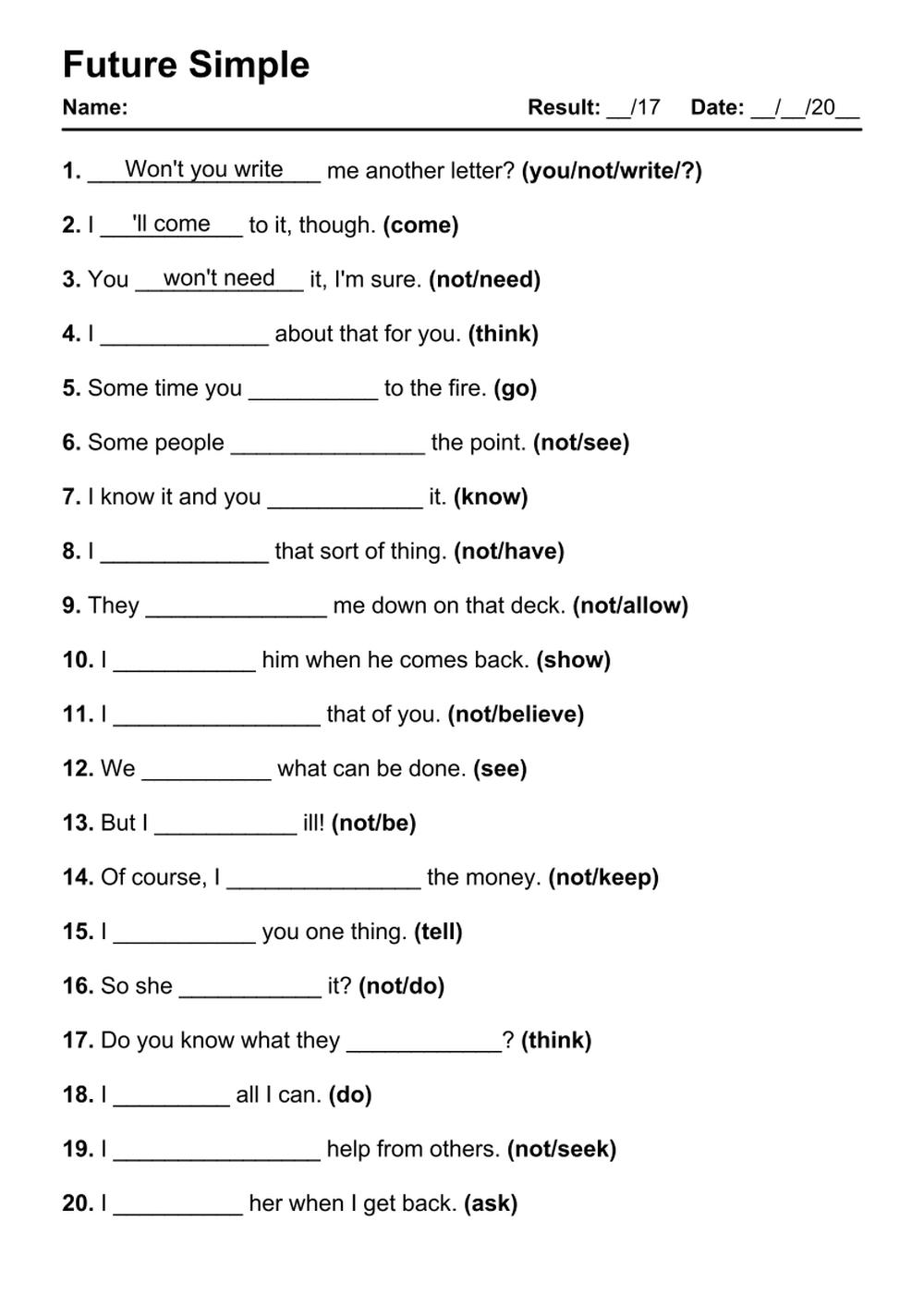
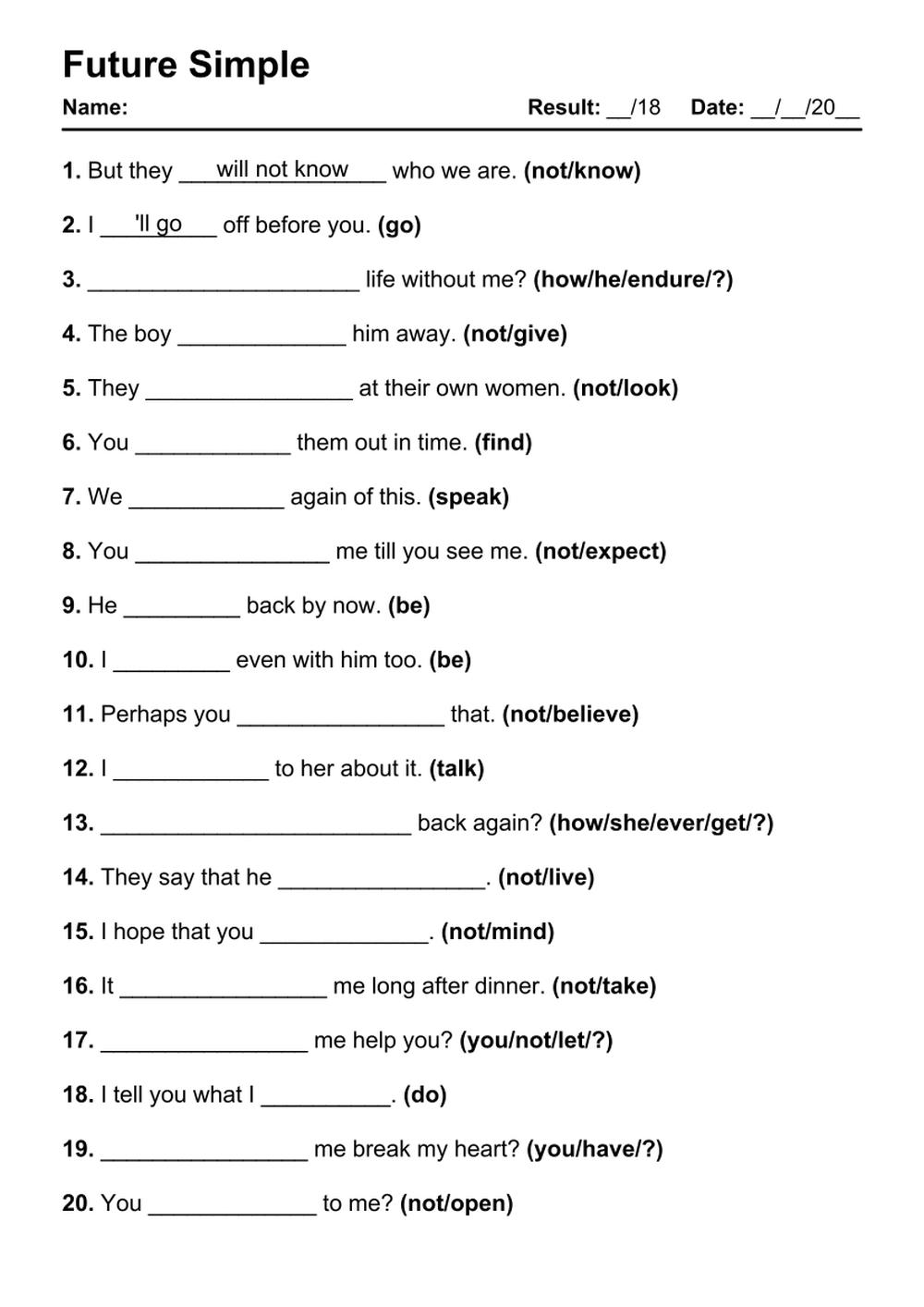
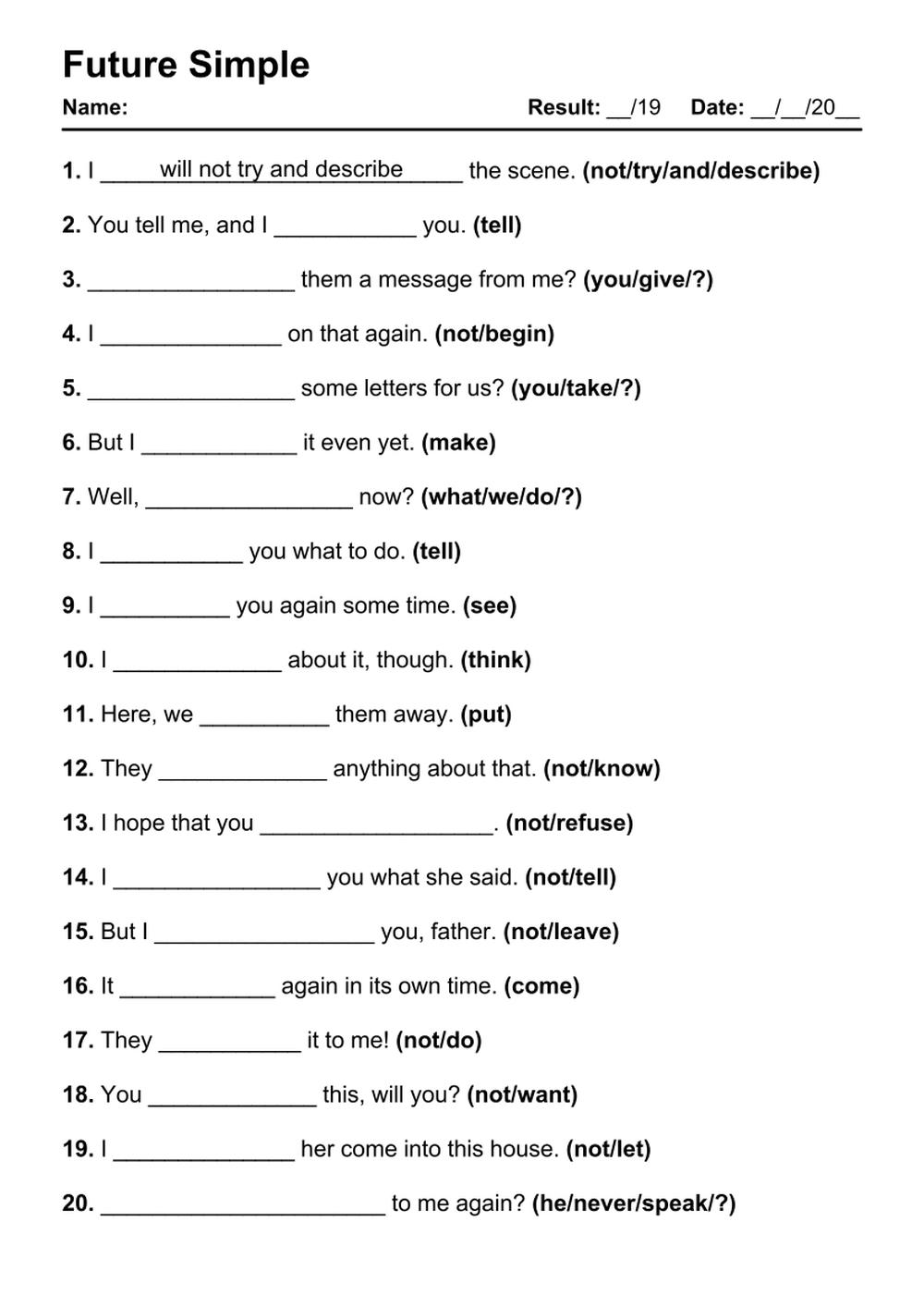
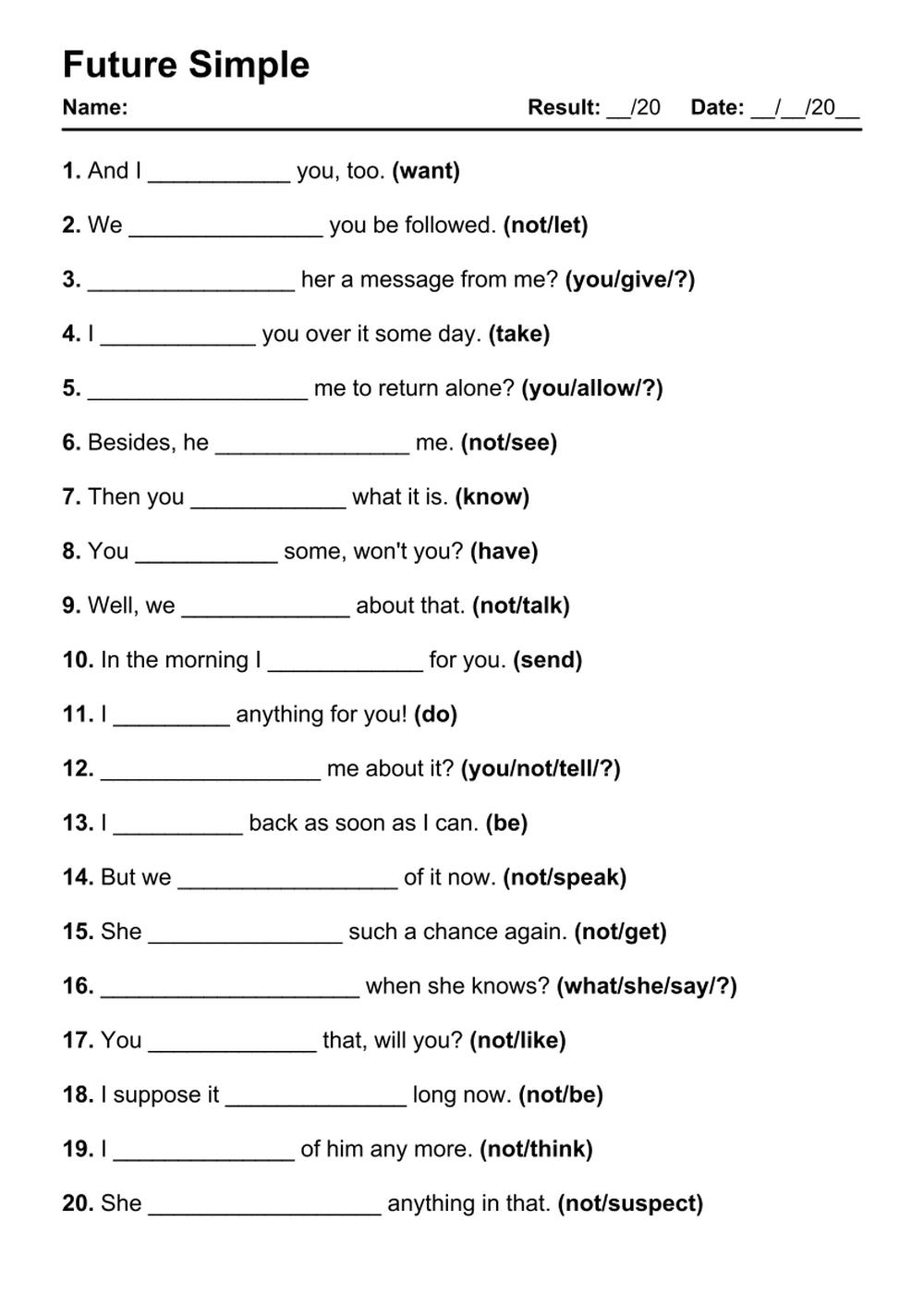
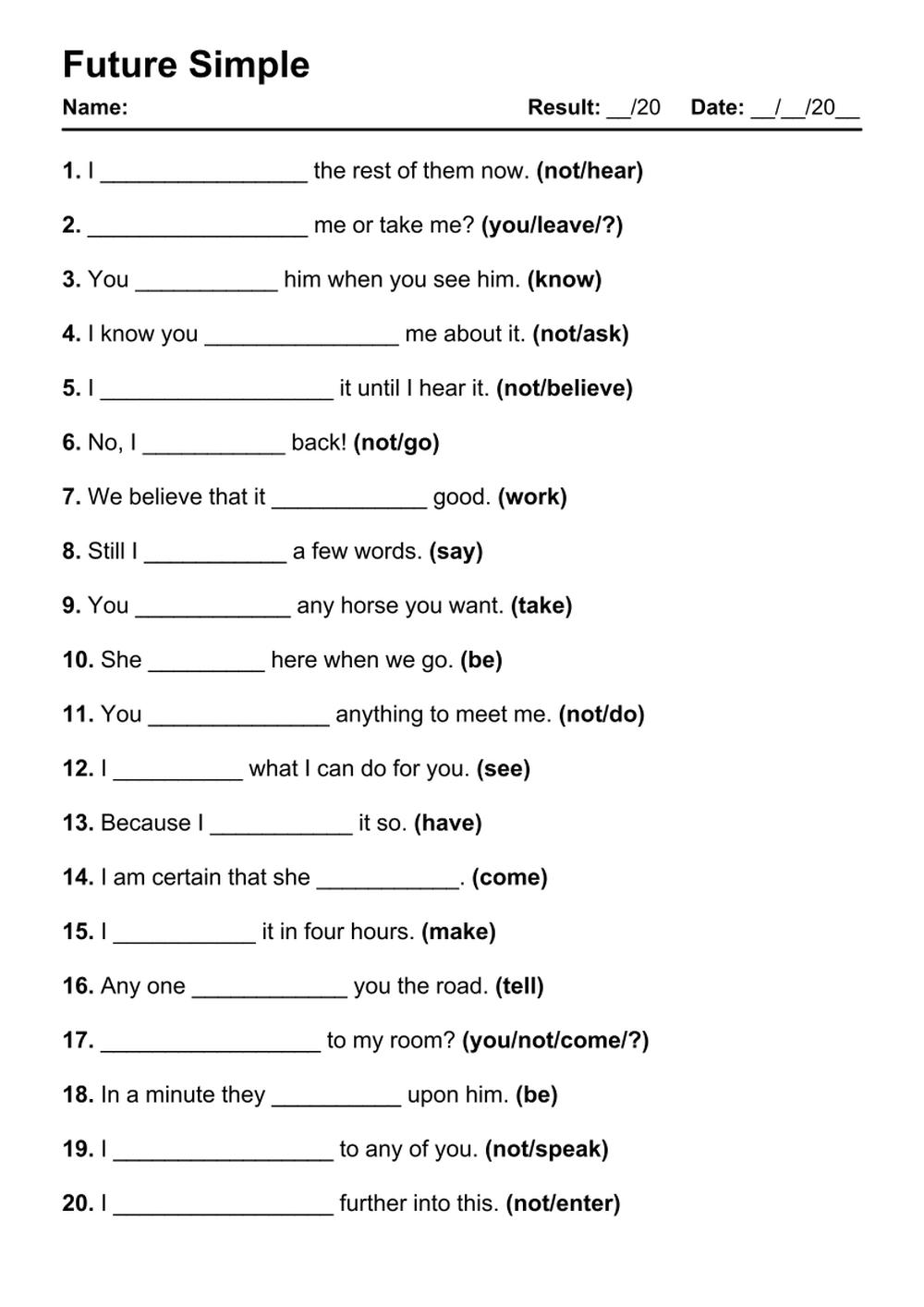
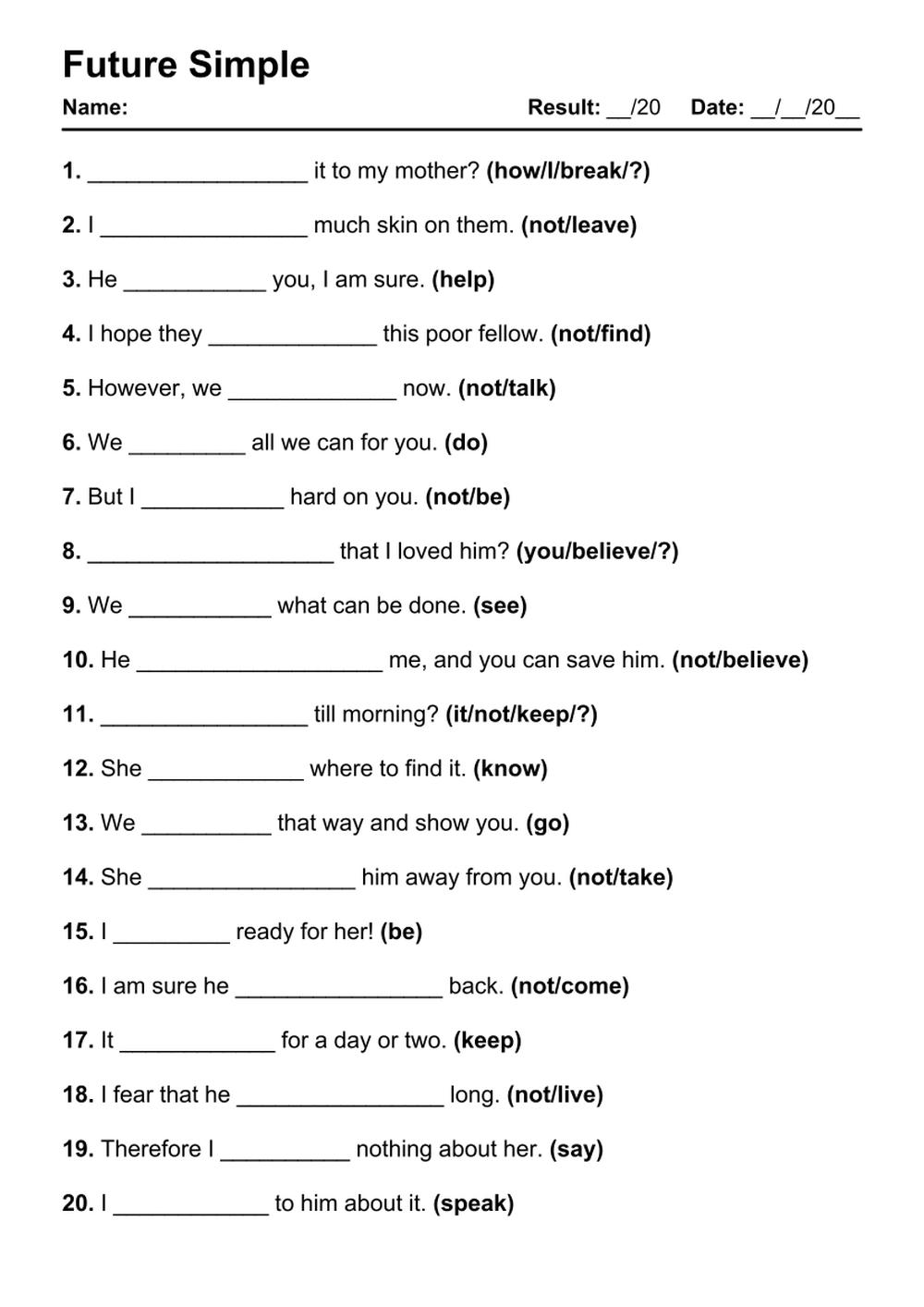
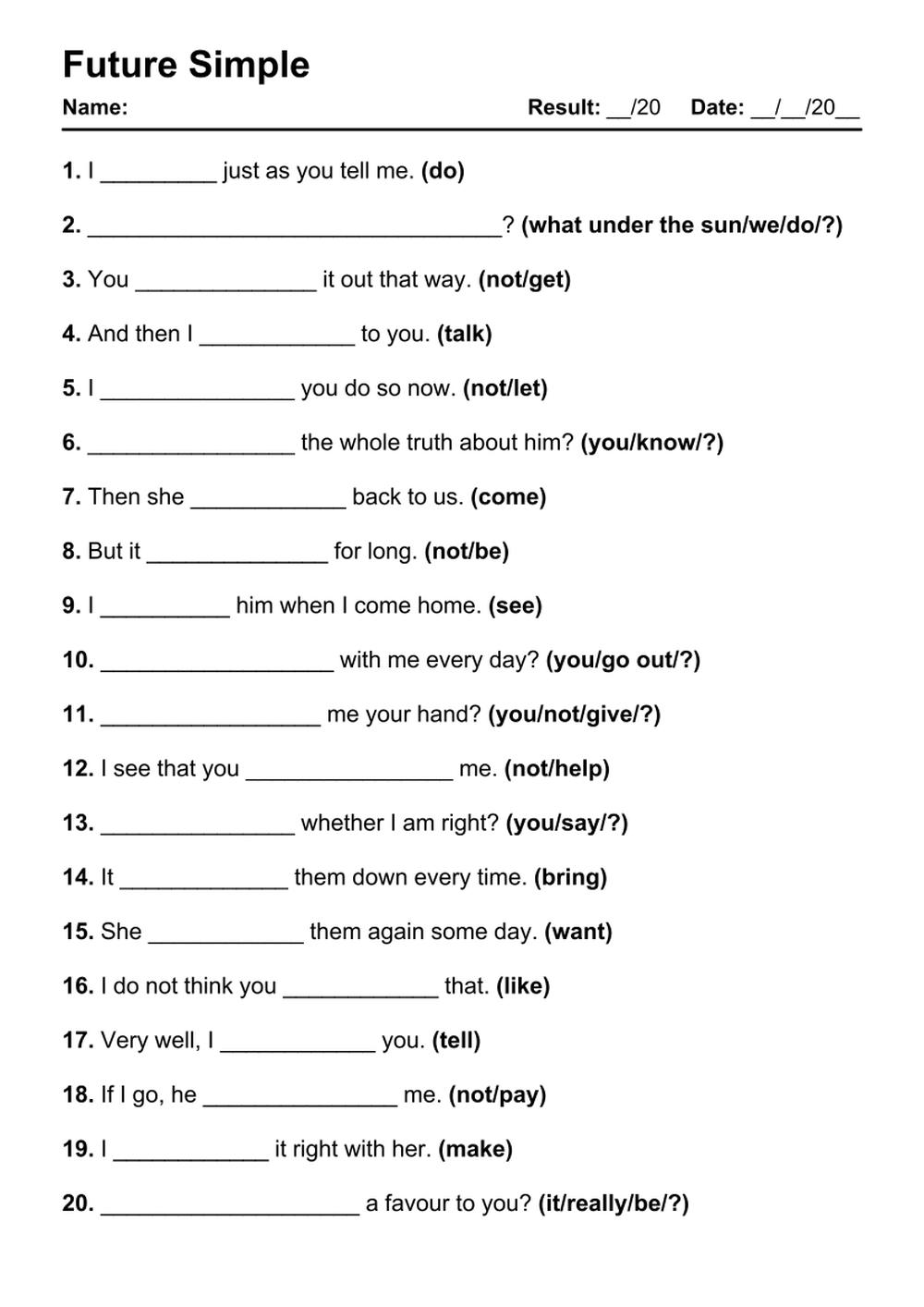
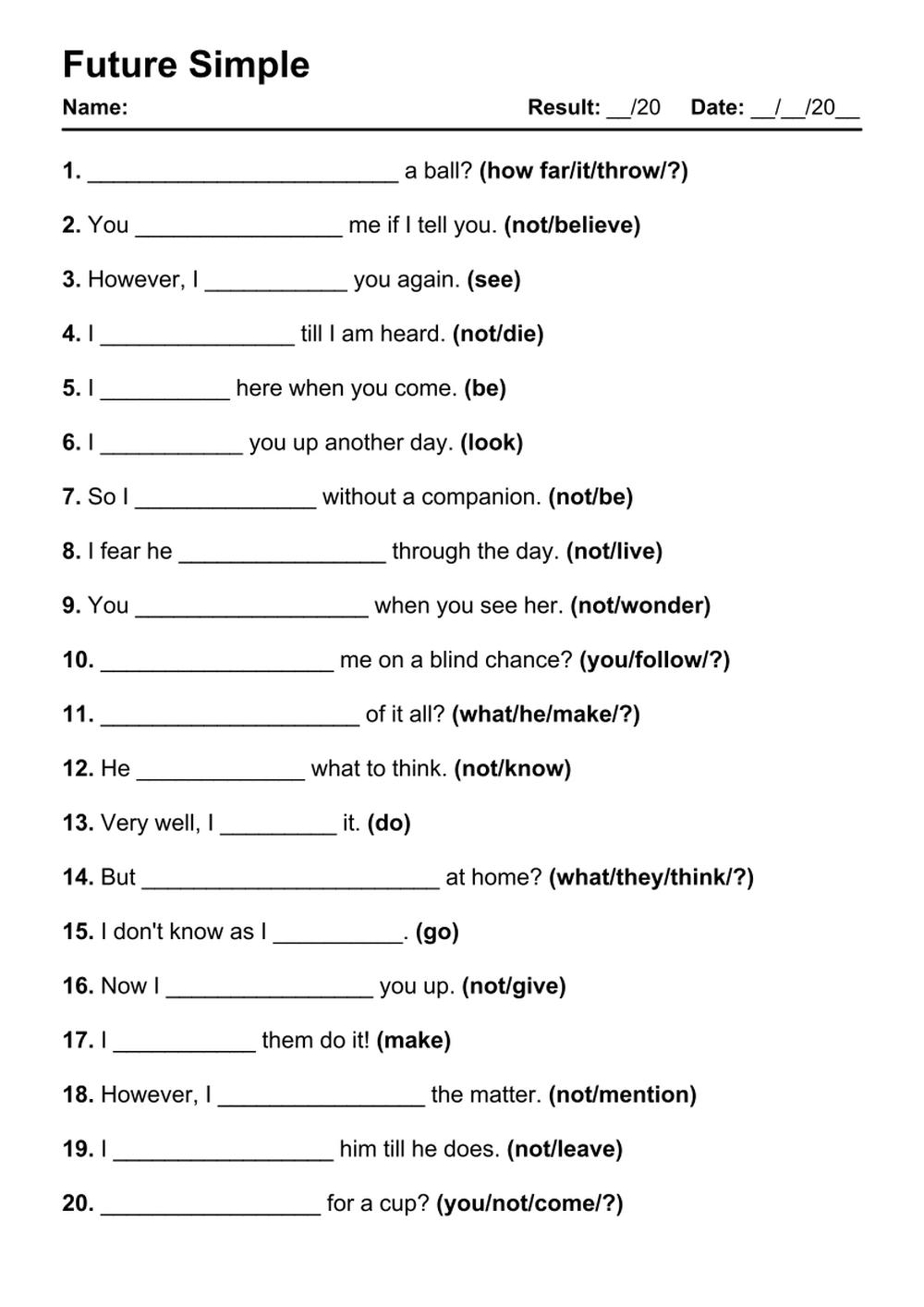


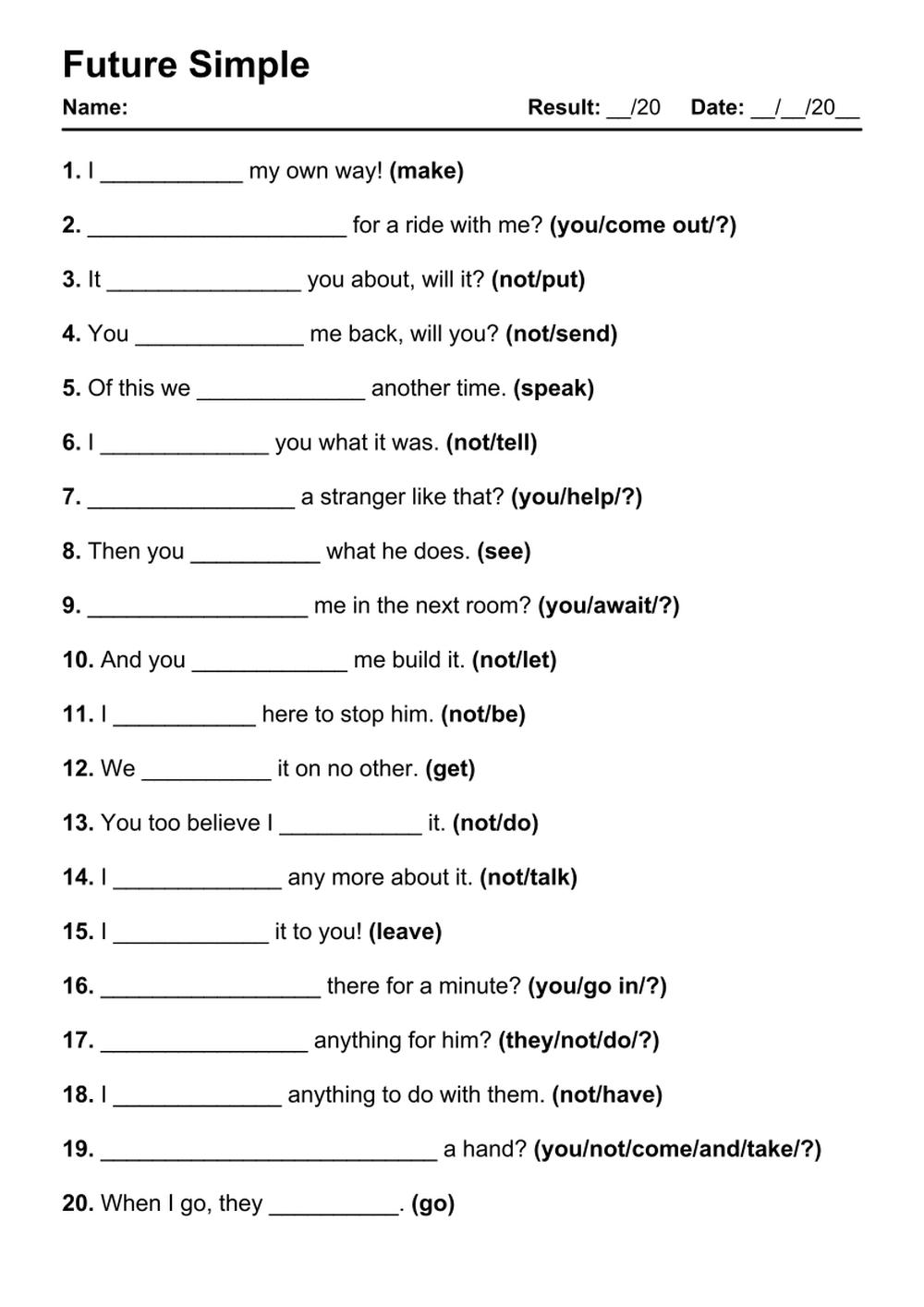
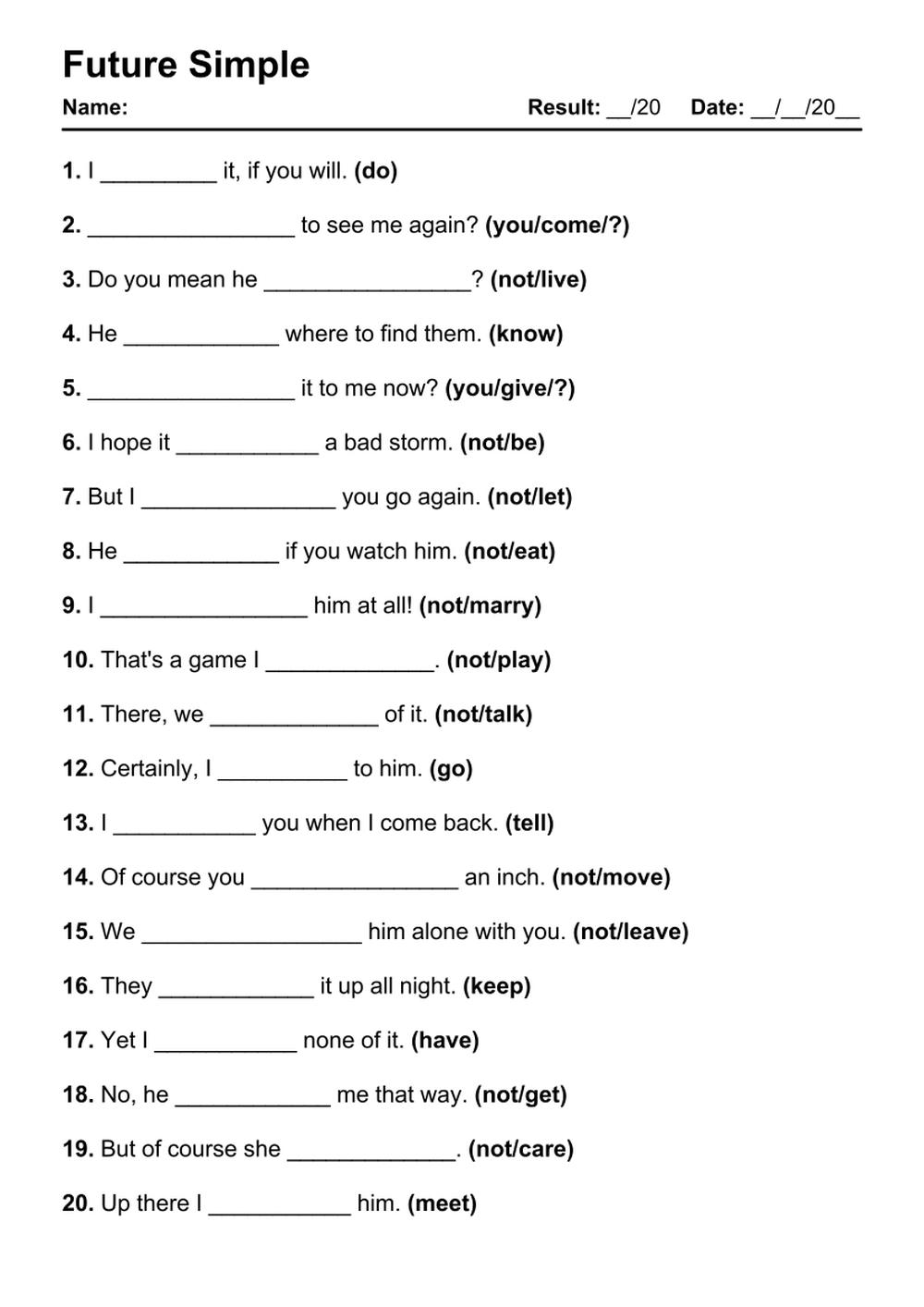




































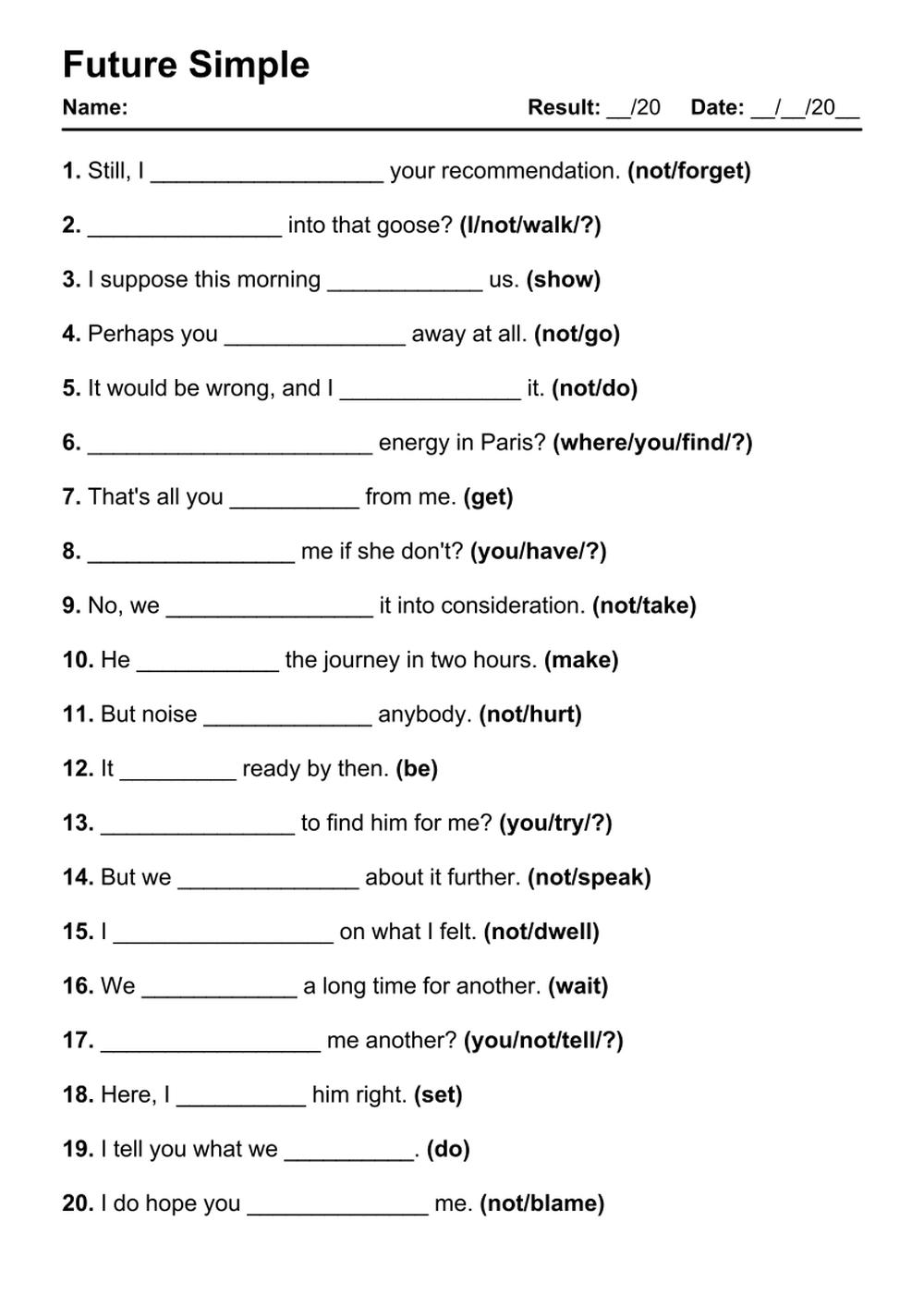




















































Future Simple Tense (will) Printable PDF Worksheet Tests with Exercises and Answers
Access a collection of 101 printable PDF worksheets focusing on the English grammar topic of the future simple. Download fill-in-the-blank tests with exercises and answer keys for future simple tense (will) to print for free. The activities in the sheets are suitable for kids, adults, ESL learners at the beginner, elementary, and intermediate levels to practice English grammar.
Related Pages
- Future Simple Online Exercises
- Be Going To PDF Worksheets
- Future Continuous PDF Worksheets
- Future Perfect PDF Worksheets
- Future Simple Negative PDF Worksheets
- Future Simple Passive PDF Worksheets
- Future Simple Positive PDF Worksheets
- Future Simple Question PDF Worksheets
- Past Future Continuous PDF Worksheets
- Past Future Perfect PDF Worksheets
- Past Future Simple PDF Worksheets
- Shall PDF Worksheets
- Would PDF Worksheets

 Bundle
Bundle Worksheet
Worksheet
 Save
Save